It all started with a heavyset, jolly Russian mini-bus driver. Surrounded by minibus drivers the moment we stepped from the taxi, he was the only one of the group going north to Kazbegi. Georgian isn’t an alphabet that we understand, so basically we’re like children, asking 1000 times which direction to go even though we might be standing right next to the sign. 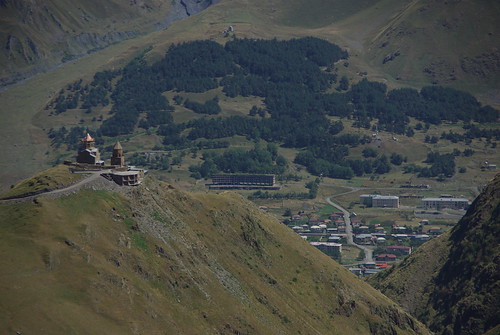 As he walked us to his mini-bus he chatted away in Russian and Georgian, which we didn’t understand. Determined to make himself understood he asked if we spoke a number of languages. “Ruske?” he asked hopefully. “Net,” I said. “Georgian?” he tried again. “Net, Espanol,” I said hopefully. “Net.” he replied. “English,” I continued. “Net, Italiano?” he said with a huge smile. Terror struck my heart, I literally haven’t spoken Italian in five years, but before I could protest Danny said “si.” and the man’s face lit up. It turned out that his Italian was just as bad as mine. Through charades and a few Italian phrases we introduced ourselves and our Italian backgrounds.
As he walked us to his mini-bus he chatted away in Russian and Georgian, which we didn’t understand. Determined to make himself understood he asked if we spoke a number of languages. “Ruske?” he asked hopefully. “Net,” I said. “Georgian?” he tried again. “Net, Espanol,” I said hopefully. “Net.” he replied. “English,” I continued. “Net, Italiano?” he said with a huge smile. Terror struck my heart, I literally haven’t spoken Italian in five years, but before I could protest Danny said “si.” and the man’s face lit up. It turned out that his Italian was just as bad as mine. Through charades and a few Italian phrases we introduced ourselves and our Italian backgrounds.
Thrilled to be with us, he took us to a small bakery stall for breakfast and arranged for us to ride in another mini-bus to Kazbegi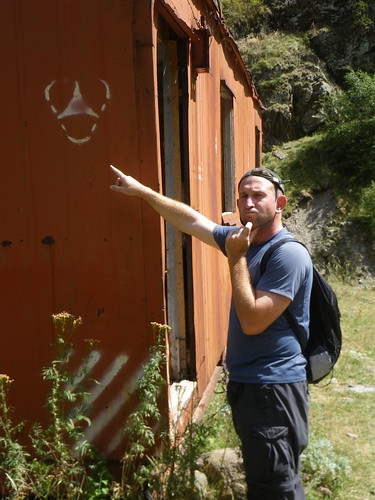 . We were unclear what was going on, and his initial price was double what we were expecting, so we assumed it would be private. As we threw our stuff in the back of his friends shared mini-bus he was no where to be found. Our jolly, friendly and delightful Russian friend had taken our money and ran. Slightly perturbed, you can imagine my surprise when a few minutes later he appeared with small change to give us a refund. Delighted we shook hands several times and the mini-bus took off for the hills.
. We were unclear what was going on, and his initial price was double what we were expecting, so we assumed it would be private. As we threw our stuff in the back of his friends shared mini-bus he was no where to be found. Our jolly, friendly and delightful Russian friend had taken our money and ran. Slightly perturbed, you can imagine my surprise when a few minutes later he appeared with small change to give us a refund. Delighted we shook hands several times and the mini-bus took off for the hills.
Kazbegi is the highest mountain in Georgia and we spent our time in the area hiking to a glacier, waterfall and monastery. The scenery was beautiful and although we were only 15km from Russia we never made it all the way to the border, which isn’t probably such a bad thing since we heard occasionally there are still shots fired across the frontier.
On our last day in Kazbegi, walking back from the waterfall near the Russian border, a white mini-bus stopped short on the cliff side road. “Italiani! Amici!” a voice boomed in the sunlight. Squinting to see the man’s face, I realized it was our Russian mini-bus friend from Tbilisi. 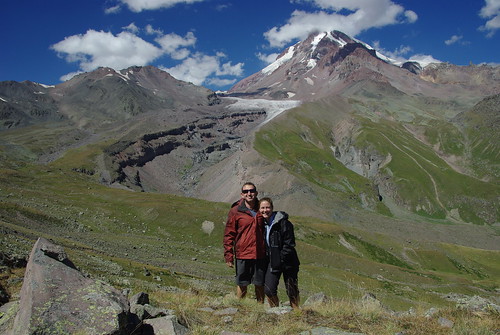 Offering us a ride back to Tbilisi, we had a difficult time explaining that we already had arranged a ride back. With his passengers anxious to get back on the road, we exchanged phone numbers and went on our way. Standing with his number in my hand, Danny and I laughed, we could hardly communicate face to face, what on earth would we do on the phone?
Offering us a ride back to Tbilisi, we had a difficult time explaining that we already had arranged a ride back. With his passengers anxious to get back on the road, we exchanged phone numbers and went on our way. Standing with his number in my hand, Danny and I laughed, we could hardly communicate face to face, what on earth would we do on the phone?
That night, back in Tbilisi, we had our hotel receptionist call him and explain the situation. He was delighted to hear from us and called again the next day with his own translator. Although we shared only a few words in common, he invited us to his home the next time we were in Tbilisi and wished us luck on our journey.
If You Go: Mashrutka’s (mini buses) run regularly from Tbilisi’s Didube metro station to Kazbegi, expect to pay around 10 GEL for the 2.5-3 hr ride. There is a hotel in Kazbegi but most travelers choose a homestay, which usually includes breakfast and dinner. Expect to pay around 30 GEL per person for a double room, dorms are cheaper, but look first, many homestays cram too many beds into one space. Trekking maps are available at the Mountain House, which also may have accommodation space and helps organize climbing and multi-day trekking trips. Basic food & sundries are available in town, but the selection is limited. There are tons of great day hike and day trip opportunities throughout the area which can be arranged in Kazbegi, ask at your homestay or the hotel. Note that the Russian border is CLOSED to foreigners, only Georgians and Russians may cross. At the time of our visit the area was very safe and quiet, but keep an eye on ongoing problems in bordering Russian states as well as relations between Georgia and Russia.


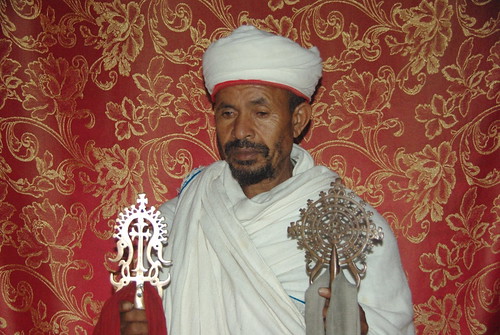

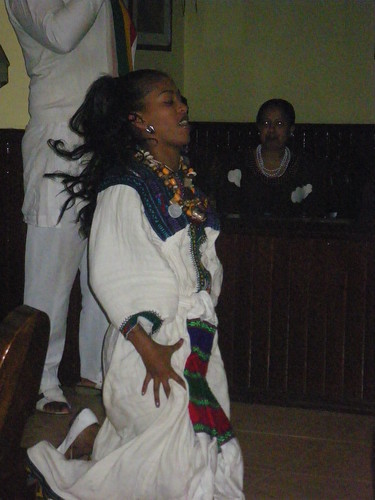
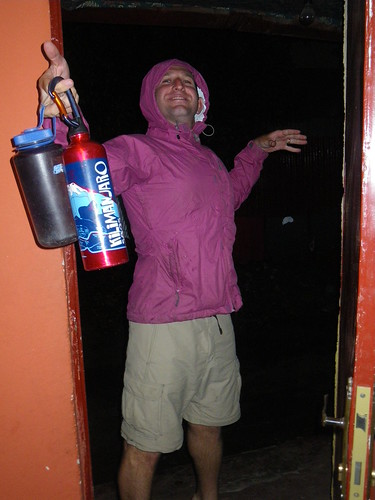
Recent Comments